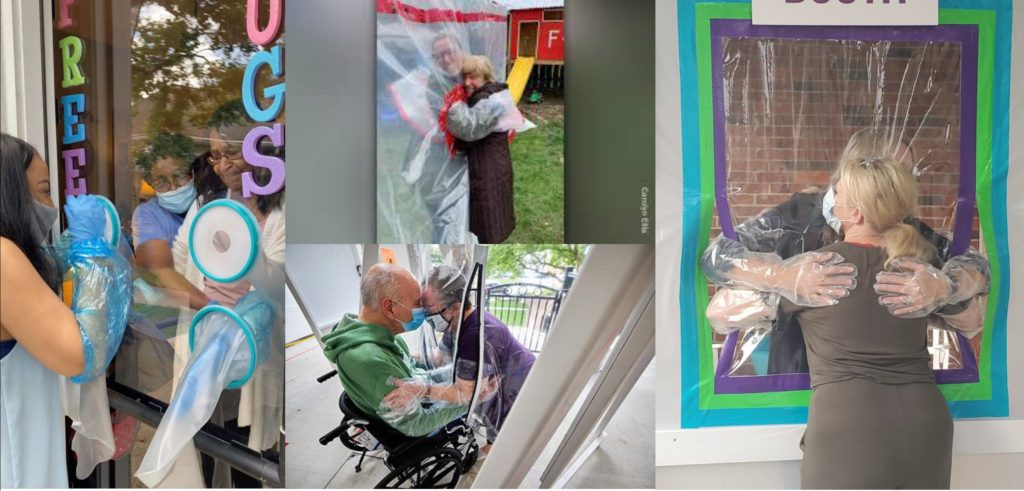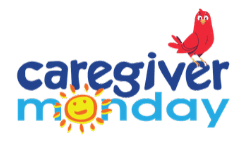November is the month for giving and gratitude. Starting with the Thanksgiving holiday gathering family and friends followed by #GivingTuesday (held every year the Tuesday after Thanksgiving), the day Americans donate to favorite charities and nonprofits and give back to those in need.
November is also National Family Caregiver Month, a time to recognize and celebrate the nation’s 65 million family caregivers. Caregivers give so much, but rarely do they ask for anything in return. This month, we encourage caregivers to give back to themselves in the form of self-care.
The impact of COVID-19 on caregivers
This year, the coronavirus pandemic has created ongoing stress, anxiety, weariness and malaise for many of us, but for many caregivers, the impact has been even more alarming.
An October, 2020 report from the Rosalynn Carter Institute found 83% of caregivers report increased stress while a Harvard University study showed 4 in 10 caregivers report increased psychological distress since COVID-19.1,2 In another study by the University of Pittsburgh, researchers found caregivers have had a 43% increase in anxiety, sleep problems and other health issues since the pandemic began.3
A study by Blue Cross Blue Shield published in September showed caregivers had 26% poorer health than the general population due to the stress that comes with their responsibilities during COVID-19. Among these caregivers in health decline, millennial caregivers were 82% more likely to have hypertension, 60% more likely to have anxiety and 64% more likely to have major depression compared to non-caregivers.4
“Very few caregivers get the break they need to focus on themselves,” said Lisa Winstel, chief operating officer of the Caregiver Action Network and a supporter of the Caregiver Monday campaign. “Especially now we have to encourage family caregivers to take this time and build a self-care plan that they can sustain even after we come through this crisis.”
Three Gifts for Caregiver Self-Care
- Have a little hygge
One unintended yet positive consequence of the coronavirus crisis may be more time for caregivers to focus on their own wellness needs. Being homebound can afford caregivers the time to unplug and practice what the Danish call “hygge.” Unplug the noise pollution (like that caused by the technology we use) and focus on cozy time such as snuggling up with a good book, engaging in mindfulness meditation, making some coffee or cocoa or just taking a walk and letting the noise of nature quiet the mind and soothe the body and soul.
2. One can be the loneliest number – reach out and receive
John Donne’s book, “No Man Is An Island” reminds us all that we are not alone and this is especially true for caregivers. It is hard not to feel isolated from loved ones and friends during this pandemic. Researcher Julianne Holt-Lundstad, professor of psychology and neuroscience at Brigham Young University, studied loneliness and found it can be the negative health equivalent of smoking 15 cigarettes a day. It can actually be a bigger health risk than obesity and air pollution.5 By reaching out – even virtually – we stay connected and comforted in an uncertain world. Use technology such as videochat or even an old-fashioned phone call can remind us that we love and are loved.
3. Cuddle up
Everyone is adhering to social distancing rules but it is still important to experience physical touch, such as a daily hug, in a safe way. Susan Pinker, a psychologist and author, advises that hugs release the hormone oxytocin that makes us feel bonded to others. Neuroeconomist Paul Zak found eight hugs a day creates an oxytocin level that is found to be neuroprotective. Check out one solution – The Hugging Booth – that assisted living and hospitals have devised for safe hugging. So while we need to stay safe and distanced to not put loved ones at risk, hug your spouse or partner, your children, your friends, your cocker spaniel, your cat, a plush toy. And especially this November, give a caregiver a hug – it is the gift every caregiver needs.

Find all of our Caregiver Monday self-care practices and ideas here.
References
1 Rosalynn Carter Caregiving Institute, (October, 2020). Caregivers in crisis: caregiving in the time of Covid-19. Georgia Southwestern State University, Americus, GA.
2 Park, S. S. (2020). Caregivers’ Mental Health and Somatic Symptoms During COVID-19. The Journals of : Series B.
3 University of Pittsburgh, (July, 2020). Effects of Covid-19 on family caregivers: a community survey from the community of Pittsburgh. Pittsburgh, PA.
4 Blue Cross Blue Shield Association (BCBSA), (September, 2020). The impact of caregiving on mental and physical health. The Health of America Report Series. Chicago, IL
5 Holt-Lunstad, J. (2017). The potential public health relevance of social isolation and loneliness: Prevalence, epidemiology, and risk factors. Public Policy & Aging Report, 27(4), 127-130.
©2020 Copyright Sherri Snelling

Hi Everyone,
As November is National Caregivers month, I wanted to take a moment to thank all the caregivers out there, especially those who are struggling more than ever during COVID.
I’d also like to take a moment to see if anyone reading is a caregiver to someone with dementia and invite you to participate in the research study UC Berkeley’s Psychophysiology Lab is currently recruiting for. This is a study testing in-home assistive technology that aims to reduce caregiver stress and increase the safety of persons with dementia. We are currently seeking 40 more participants and will close recruitment on November 15th. If anyone reading is interested, I encourage you to visit our study website at https://research.presencefamily.com/